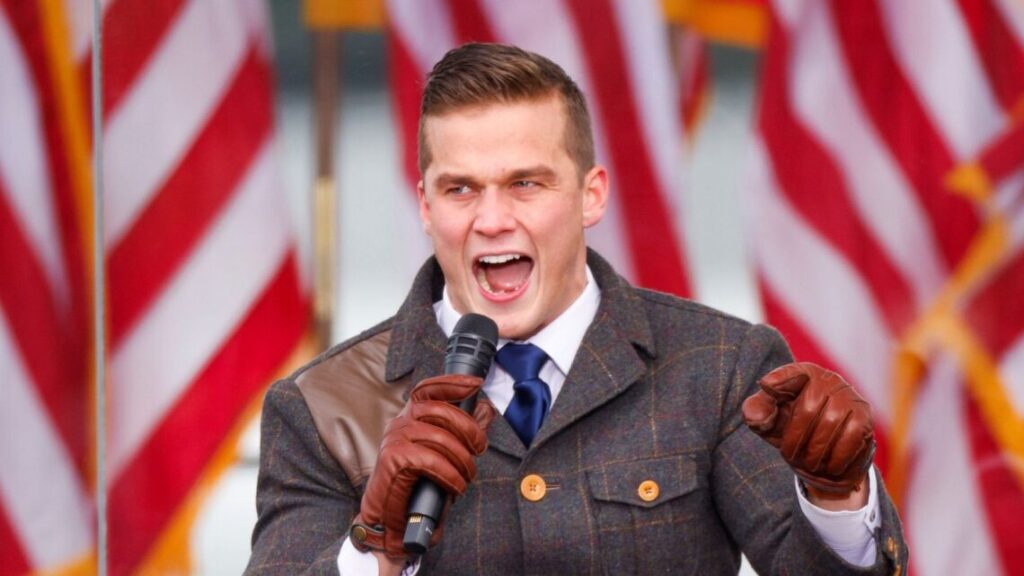No election has resulted in more court cases over more issues than the 2020 General Election. That may have something to do with the tenor of the times, but more likely due to the way the Congress, the courts and the states have … well … screwed up our elections – with no small credit going to our litigious professional ruling-class. It did not have to be this way.
This election came at a time when America had the most advanced and sophisticated tabulating and communication technology in the world. The vast majority of the ballots should be counted and announced – if not officially certified – within hours of the close of the polls on the west coast.
On the other hand, it is not unconstitutional, illegal, immoral or un-American to bring voting disputes to the courts to decide. That is what they are there for – and we do it in virtually every election to a greater or lesser degree. Only the closest of races should be – and have been — delayed by slow counts and recounts — or result in prolonged court cases.
Even in the 1800s, the simple telegraph would announce the winner of most presidential races to the masses in a matter of days. In more modern times – before all these crazy rule and law changes – the winning presidential candidate would often be projected by the news media within minutes of the close of the polls in California. It was considered extraordinary if we did not get the results until the wee hours of the morning or the next day. But we seem to have now gone backwards.
For sure, there were exceptions. The elections of 1976 and 2000 were dragged out. But we call them “exceptions” for a reason. If you are not familiar with the details of those elections, look them up online.
Thanks to changes in procedures – intentional or unwitting – 2020 is shaping up to be one of the most chaotic presidential elections in American history with all sorts of post-Election Day controversy and nonsense.
The pending chaos of 2020 is due to a number of rule changes – some evolving over the years and some due to accommodating the Covid-19 Pandemic. The intense political atmosphere of these divisive times is placing an additional burden on untested, confusing and flawed voting procedures.
Keep in mind that there are very few national rules covering voting. The Constitution leaves it to the several states to manage the rules – and so they differ widely state-by-state. The federal government’s main interest is to ensure that there are no constitutional violations in rules established by the states. The Congress and the White House can establish some rules for federal elections only – such as a ban on corporate contributions, donor limits and eligibility for federal office. These do not apply to state races unless the state legislature and governor enact them.
And even federal constitutional oversight is an imperfect system. We only need to recall that for more than 100 years following the Civil War, when Democrat regimes in the old Confederacy were able to conduct illegal and unconstitutional elections year-after-year. Ponder that for a moment – and consider that arguably every Democrat President of the United States from the Civil War up to President Jimmy Carter were elected on the basis of illegal elections in the thirteen officially segregated states in which there was violent oppression of Black voters.
In 2020, the state and federal courts have already been inundated with an unprecedented number of cases covering an unprecedented number of issues.
An unusually large number of pre-election cases have mostly evolved around access and voting procedures — Including such matters as the number of voting locations, including drop boxes for the collection of early votes. Other cases involve those eligible to vote. Does a person have to be registered ahead of time? Can a voter be issued a ballot without a proper identification? Should the millions of ineligible voters – those who have died, moved away or are not citizens – be removed from the voter registration lists? Should absentee ballots arriving after the legal cutoff time be counted?
Republicans have generally been the advocates for stricter rules and sticking to them as the best way to ensure an honest election. (And we should not believe the left-wing propaganda narrative that there is no serious illegal ballot manipulation.)
Democrats – in this and almost everything else – prefer to bend or break rules on a situational basis when it is to their perceived political benefit. (Think illegal border crossing, non-prosecution of rioters and allowing radical left groups occupy public and private property.)
In the name of expanding the vote (a good thing), Democrats lower the security guardrails of the election process (a bad thing). They oppose voter IDs. The fight to count illegal or spoiled ballots. They ended the requirement that the signature of the voter must match the registration record. They even eliminate hitherto defenses against vote fraud by legalizing ballot harvesting and mailing unrequested ballots to every registered voter – legal or not, dead or not. Understandably, these actions have resulted in a growing number of court cases by Republican plaintiffs.
The myriad of differing state rules creates a lot of confusion and suspicions when voters wonder why their counterparts in a neighboring state are playing by different rules. Even worse when the rules are different within one state. In Texas – for example – the law provides for one ballot dropbox per county. Democrats want many dropboxes in Harris County in which Houston is the seat of Democratic power in the Lone Star State. Yes, there is an argument to be made in view of the size of the population, but we know that such boxes can provide their own unique opportunity for mischief – and a large number cannot be as well protected as a smaller number. The proliferation of drop-in ballot boxes also fosters a number of phony receptacles – and some have appeared already in this election.
Wisconsin gives us an even more egregious example of unfair election rules. Early voting in rural (Republican) counties ends three days earlier than in Milwaukee where Democrats have a disproportionate percentage of voters. How does that help voter turnout?
Widespread early voting, itself, is fraught with problems of equity and common sense. Because ballots are stored with less bipartisan supervision over a much longer period, the potential of ballot manipulation increases. On the flip side of that coin are the local regulations that enable some states to accept and count ballots arriving long after the legal deadline – as many as 14 days.
By late this evening, we will know if we have a President-elect or not. We will know if we will be facing a protracted highly charged legal battle – and even street violence. But we have been through worse times – an election as states were seceding from the Union and the street violence of the 1960s.
Our nation will survive. But will the Founders’ vision of a free society in which we the people are the governing force survive – or will we surrender freedom to the increasingly powerful autocratic establishment that will rule over us? Will we move further away from being a government of the people, by the people and for the people? That question may have to be answered in the courts.
So, there ‘tis.




